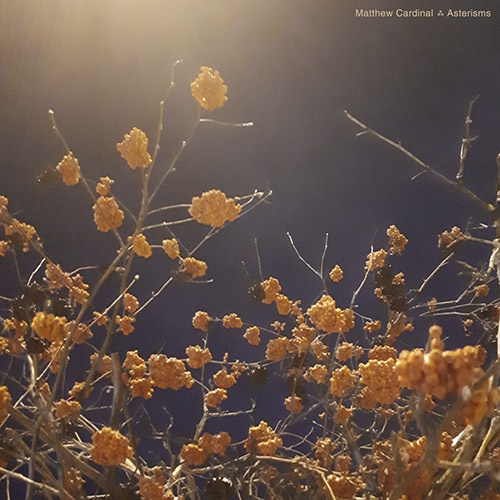
The Winter 2020 Music Room
New music from Sea Oleena, LAL, Night Lunch and Matthew Cardinal.
Weaving a Basket
After a six-year wait following 2014’s shallow, Montreal singer-songwriter Sea Oleena returns with Weaving a Basket (Independent), released this fall without any prior announcement or label backing. The record doesn’t really need an introduction, though—it’s a stunning return that stands entirely on its own. Oleena’s music has always been atmospheric, but Weaving a Basket is possibly her most experimental effort yet, simple but intricate, like the craft that inspires its title. Oleena stages a delicate interplay between her soft voice, acoustic guitar, and layers of ambient electronics and samples. The record’s mood is calm, pensive and mournful—shaped by details like a Molly Drake piano sample or a bird’s chirp. Sometimes Oleena’s voice is part of the soundscape, sometimes it’s clearer up front. On “Carrying,” she sings, “Mother sends me flowers when my baby dies / Crying on the phone instead of looking in her eyes.” Even without listening closely to the lyrics, the album carries a sense of loss and acceptance. Weaving a Basket is a cohesive and immersive experience that ebbs and flows, builds and subsides—perfect for the kind of winter night where you find yourself dreading the future, or stuck in the past, or unstuck from time entirely.
Meteors Could Come Down
As far as apocalypse records go, LAL’s Meteors Could Come Down (Coax Re-cords) takes a low-key approach. The Toronto duo, made up of Rosina Kazi and Nicholas Murray, has been releasing electronic soul together since 1998. On their seventh album, they broach the possibility of the world’s end with confidence and empathy. If the world is done for, they suggest, we should approach the end with love, and lay the groundwork for something better in its wake. Kazi’s R&B-inflected vocals float over Murray’s metallic synths and laid-back beats. The record is minimalist; running only twenty minutes long, the arrangements leave room for breathing, never building to big choruses or drops. The insularity gestures to the ways resistance can be small and intimate: “Will you remind me of why we do things?” Kazi sings on “No Excuses.” Meteors Could Come Down was written at the start of 2020 and inspired by adrienne maree brown’s book Pleasure Activism, which explores the joy in social justice work. The album is a testament to the political act of taking care of each other, and facing the worst together. On the second-last track, “Free and Broken,”Kazi intones: “Everything must change.” And a chorus of voices answers back: “I must go on.
Asterisms
An asterism is not quite a constellation. They’re smaller, and can be seen with our own eyes—we pick them out of the sky, something recognizable amidst the expanding universe. Matthew Cardinal’s excellent electronic album of the same name works similarly: made using analog synths, samplers, and a modular set-up, Asterisms (Arts & Crafts) is a collection of bright spots, flares in the dark that shimmer and dissolve. Though this is Cardinal’s debut solo album, he’s no stranger to building atmospheres, as the synth player in moccasin-gaze band nêhiyawak. Asterisms, for him, is a series of diary entries—the track titles all come from dates, and were mostly recorded in single days. This reflective mode coheres the record, but you can also tell Cardinal is having fun, steering the synths towards bursts of joy and cliffs of menace. The sounds are sharp, warm and unwieldy; they expand and contract, warp and decay in rounds and loops. “Dec 4th” starts off with lower-end synths bubbling along, when suddenly a high-pitch siren blazes overtop, transforming the track. “Mar 12th” begins with a pulsing synth that gets brighter and brighter until it overwhelms the senses. The compositions may be inspired by daily life, but they sound like dispatches from other universes—bursts of celestial bodies, opening themselves up to be heard.
Wall of Love
A lot of indie music these days (or post-indie—the splintered inheritors of indie rock, making guitar-music with pop structures) is achingly self-serious, so it’s nice to encounter Wall of Love (Celluloid Lunch), a record with a tongue firmly in its cheek. Montreal quartet Night Lunch call themselves “creep-pop,” and their vibe is definitely a spooky version of eighties nostalgia. But they also play with a mix of styles, dipping into the contemporary country fad on “Darlene” and jazzy muzak on “Pumpkin.” Album opener “Your Body” is the standout track, with its perfectly poppy synth riff and vocalist Lukie Lovechild’s deep drawl. The instrumentation is fairly sparse throughout. Unadorned beats and bass lines allow the band’s knack for hooks and showy vocals to shine through. It’s easy to imagine a more polished version of these songs, but that would betray the spirit of the whole thing. This is the kind of music that really makes me miss shows. Wall of Love is a record that should be heard in a dim venue, with a bunch of other people you half-know, everyone initially trying to look cool and eventually giving in to the joy of a good tune.





